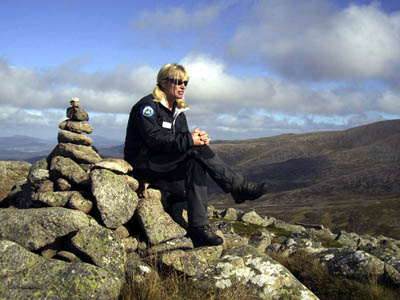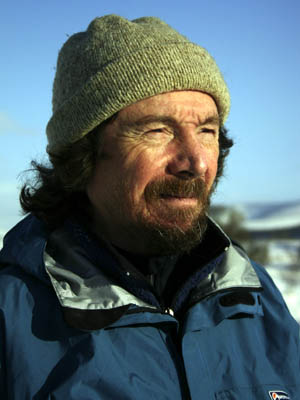
Heather Morning: 'Our work will help to reduce mountaineering incidents'
The number of mountain rescue incidents in Scotland has fallen to a 30-year-low, according to the representative body for climbers, hillwalkers and mountaineers.
The Mountaineering Council of Scotland pointed to the success of its mountain safety programme of courses and lectures, with almost 1,400 people taking part in the past year.
MCofS mountain safety adviser Heather Morning said: “The MCofS has communicated its mountain safety message to a record number of people in the same year as mountain rescue incidents in Scotland fell to a 30-year low.
“We can’t prove a correlation between the two, but the MCofS is dedicated to making a significant contribution to skills and self-reliance in the mountains. We believe that our work will help to reduce mountaineering incidents.”
The council published its annual report ahead of its planned gathering in Dunblane in September.
The report also revealed membership had grown to 11,000 and that almost 50 per cent of the Great Britain sportclimbing team was made up of Scottish athletes.
The organisation also pointed out that the Scottish Government had been forced to consult over the future of estate tracks in wild areas after the Hill Tracks campaign, in which the MCofS was a key participant.
The council had also achieved the foundation level of the Equity Standard for Sport.
The outgoing president, writer and journalist Chris Townsend, sounded a note of caution on two crucial matters. He said: “Without the freedom to access the mountains as and when we like and without a healthy and attractive mountain environment there is little future for mountaineering.

Chris Townsend: 'Vigilance is still required'
“While the access battle is largely won, vigilance is still required to ensure the legislation that grants our rights isn’t slowly nibbled away. The camping ban on the roadside section of the West Highland Way on Loch Lomond should not be a precedent for similar bans elsewhere, as some anti-access people would like.”
He also emphasised his opposition to the widespread building of hillside windfarms. “Wind turbines and their associated roads are set to destroy the solitude and beauty of the Monadhliath, once the largest mountain mass uncrossed by a road and unspoilt by industry in Scotland, and other plans may see turbines visible from many summits and even encroaching on the boundaries of the Cairngorms National Park,” he said.
“Campaigning against these and other threats to the mountains is essential work and will continue but, given our overall lack of success, we do need to think of new methods and come up with new ideas to combat the despoliation.”
MCofS chief officer David Gibson said: “We achieved success in key areas but like many volunteer-led organisations we face a challenging future; representing our members’ interests, promoting self-reliance in the mountains, and developing and supporting Scottish climbing talent continue to be our key priorities.”
Brian Linington, an MCofS director since 2008, has been nominated for the post of president.
Ian Dawson
02 August 2011I'm afraid you have your statistics confused here. Scottish Mountain Rescue has noted overall an increasing number of call outs year on year. Though last year saw a small reduction in this trend. Your headline is taken from the fact that mountaineering fatalities are down at there lowest for 30 years.
Taken from statistical report:
"More than a third of all mountain rescue call-outs in Scotland last year were not mountaineering related, figures have shown. These can be in forest, town etc
Scottish teams responded to a total of 534 incidents in 2010 - a decline on 2009's figure of 558.
But non-mountaineering call-outs - like missing people searches - rose from 172 to 194, representing 36% of the total.
The figures also show the lowest number of mountaineering accident deaths in 30 years"
I think this story requires clarification to reflect the actual facts.
Regards, Ian
Bob
02 August 2011Hi Ian
The headline is taken directly from a quote by Heather Morning, mountain safety adviser for the Mountaineering Council of Scotland, who said: "The MCofS has communicated its mountain safety message to a record number of people in the same year as mountain rescue incidents in Scotland fell to a 30-year low.
“We can’t prove a correlation between the two, but the MCofS is dedicated to making a significant contribution to skills and self-reliance in the mountains. We believe that our work will help to reduce mountaineering incidents.”
Bob Smith
Editorial director